选修模块7 Unit 20 New Frontiers Lesson 3 Scientific Breakthroughs课件(28张)
文档属性
| 名称 | 选修模块7 Unit 20 New Frontiers Lesson 3 Scientific Breakthroughs课件(28张) |
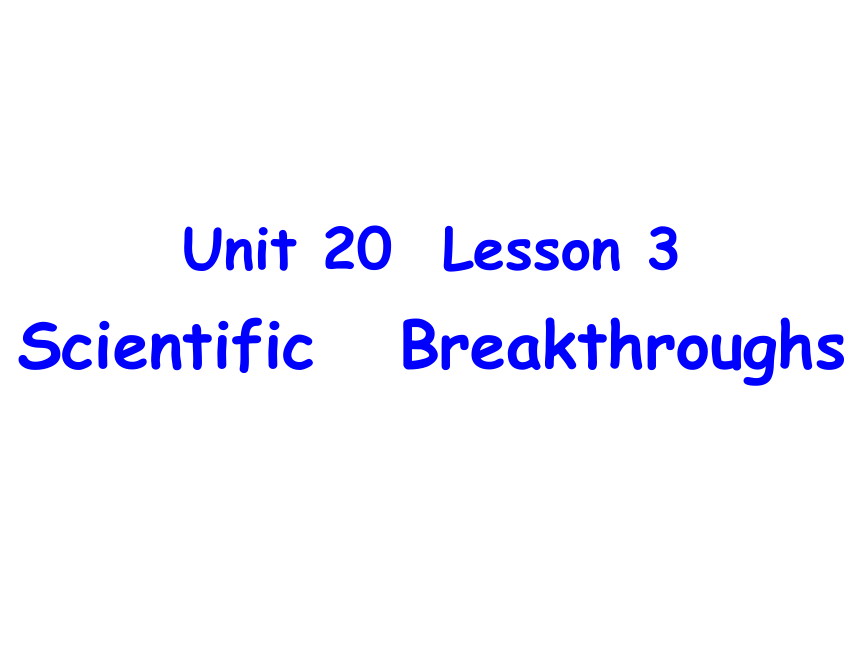
|
|
| 格式 | zip | ||
| 文件大小 | 996.5KB | ||
| 资源类型 | 教案 | ||
| 版本资源 | 北师大版 | ||
| 科目 | 英语 | ||
| 更新时间 | 2019-07-12 00:00:00 | ||
图片预览

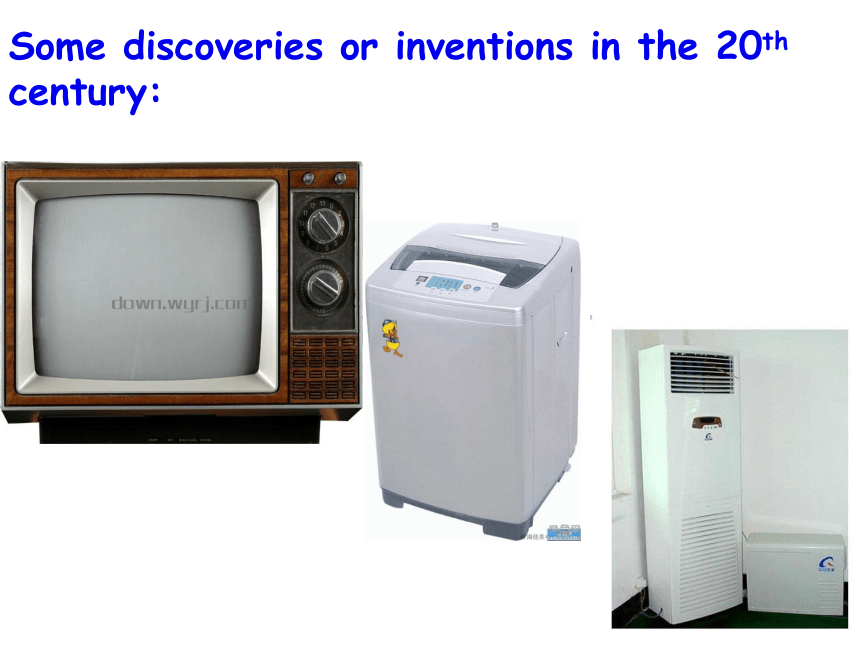
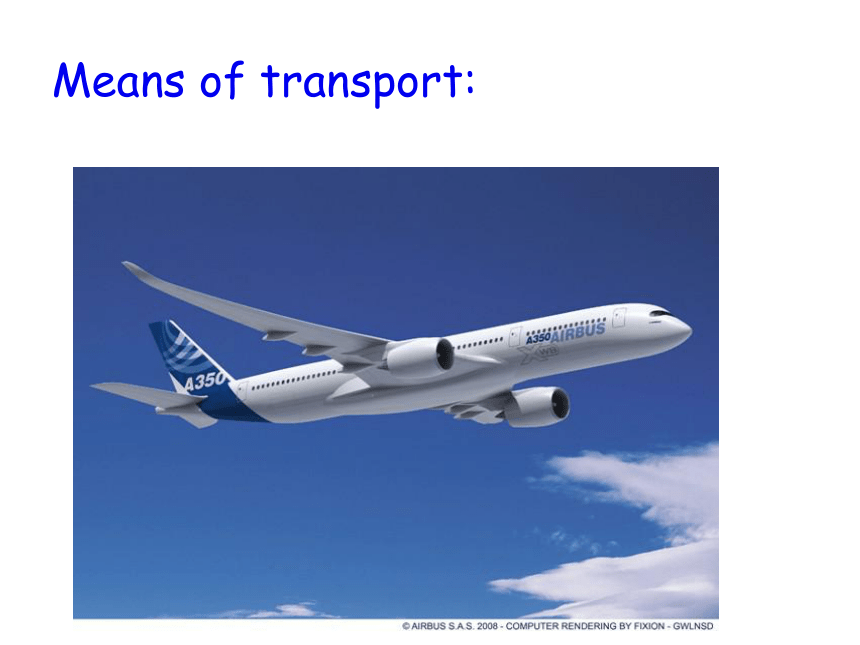
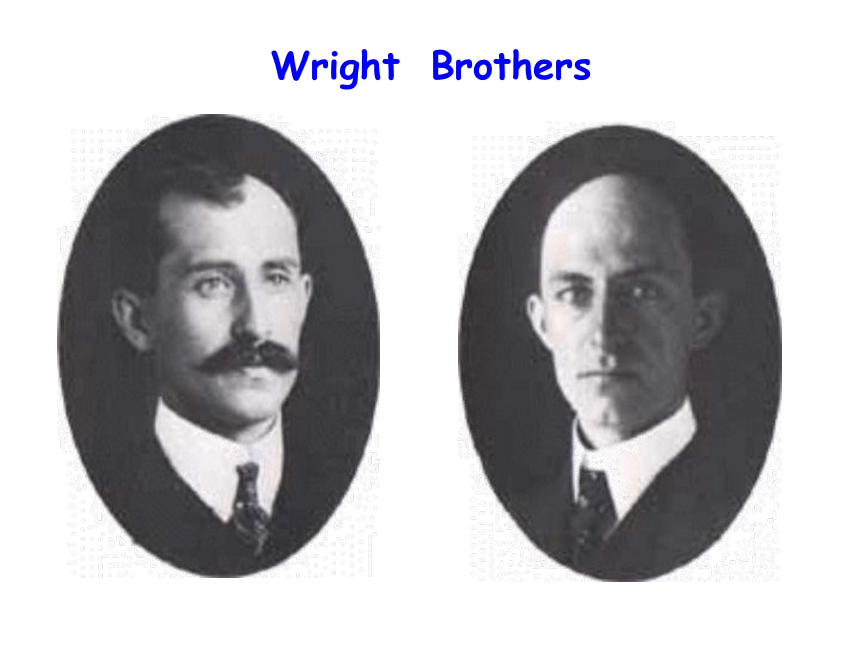
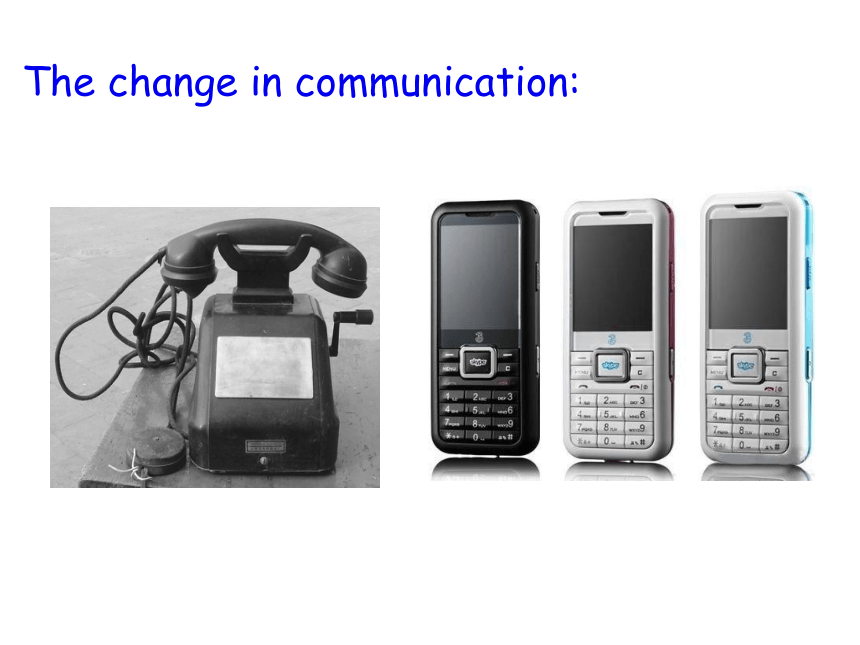
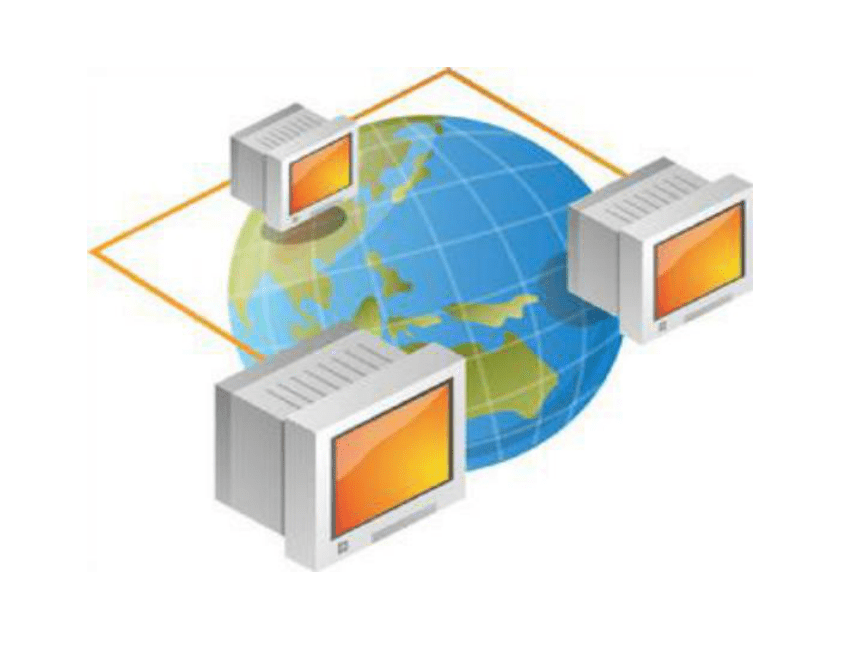
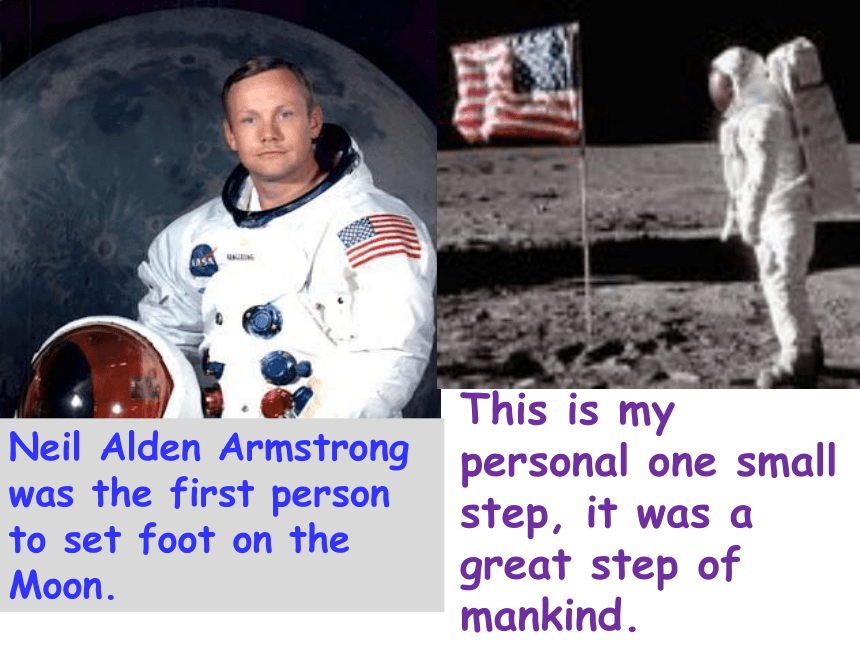
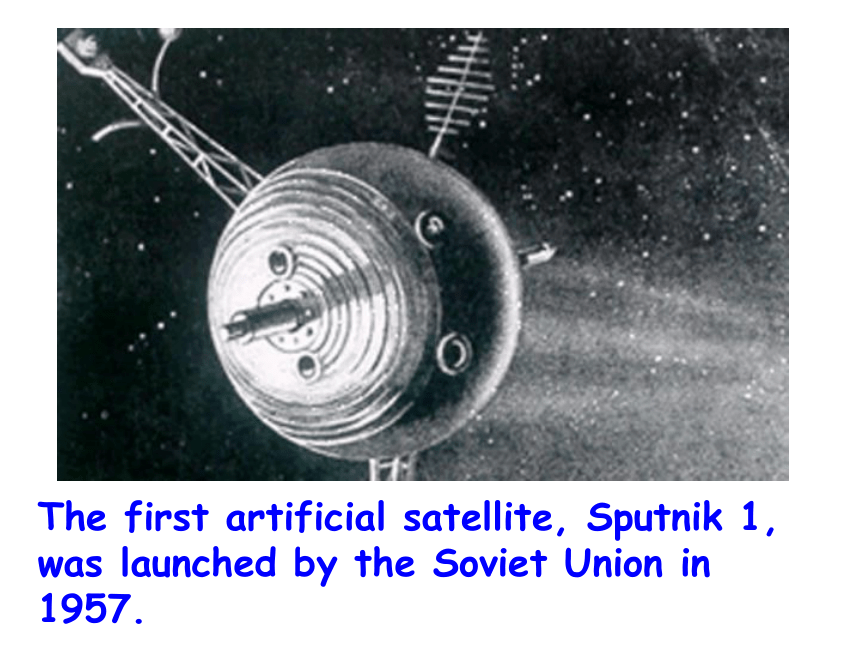
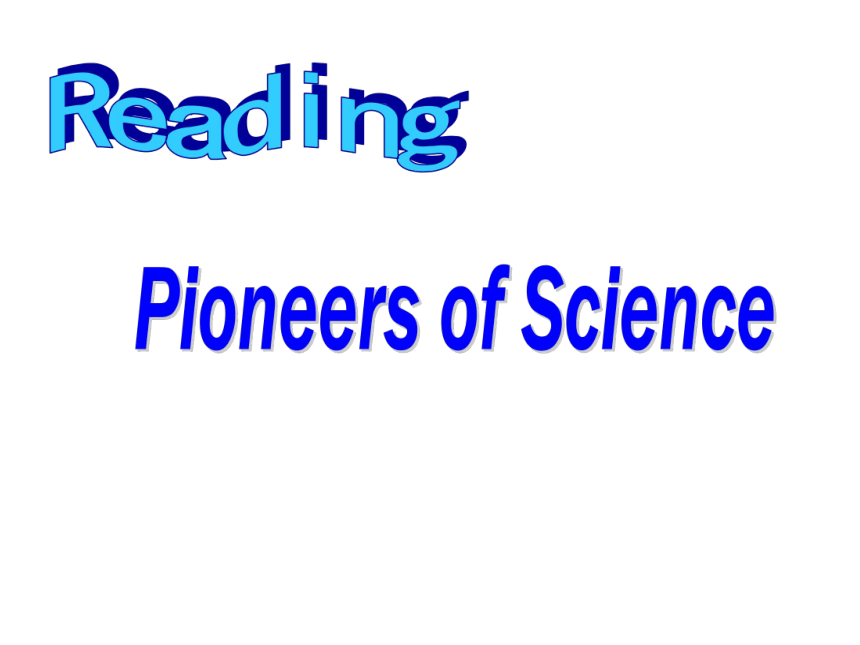
文档简介
课件28张PPT。
Unit 20 Lesson 3
Scientific BreakthroughsSome discoveries or inventions in the 20th century:Means of transport:Wright BrothersThe change in communication:Neil Alden Armstrong was the first person to set foot on the Moon.This is my personal one small step, it was a great step of mankind.The first artificial satellite, Sputnik 1, was launched by the Soviet Union in 1957.ReadingPioneers of ScienceHis greatest discovery is the creation of his famous Theory of Relativity. Albert EinsteinAlbert Einstein was considered the greatest scientist of the 20th century. Edwin Hubble was an American astronomer. His most important discovery was the expanding universe. Edwin HubbleHubble space telescope
Alexander Fleming, a Scottish biochemist,
discovered Penicillin.Alexander FlemingThe World First ComputerThe designer of ENIAC, the first commercial computer made in the United States.
John William Mauchly and J. Presper EckertPercy Spencer, an American engineer and inventor, discovered microwaves.Percy Spencer1.The equation E=mc2
2.Penicillin
3.The first computer
4.Other galaxies
5. MicrowaveTry to match the discoveries
with how they were discovered?a)Scientists worked
together as a team
b)There was a lucky accident
c)A scientist did research for many years
d)A scientist was inspired
e) There was a mistake introduction
Body
ConclusionSimple outline A brief introduction of scientific breakthroughs in the 20th centurySome great pioneers of science and their inventions or discoveriesThe significance of these breakthroughs
Einstein was at work when he thought of the equation “E=mc2”.
Einstein participated in the program that developed the nuclear bomb.
Einstein observed changes in time, size and mass.
Hubble studied the universe for over twenty years.
Hubble discovered that our galaxy is bigger than we thought it was.Are these statement true or false according to the text or is there no information?6. Fleming had been studying bacteria in his laboratory when the discovery happened.
7. There was a blue mould around the bacteria in the dish.
8. Fleming developed the process of making penicillin.
9. The first computer project failed to meet its original goal.
10. The first computer was extremely difficult to program.
11. The scientist who discovered microwaves invented microwave ovens.
12. Today it is possible to donate your heart to hospital when you die.Einstein was at work when he thought of the equation “E=mc2”.
Einstein participated in the program that developed the nuclear bomb.
Einstein observed changes in time, size and mass.
Hubble studied the universe for over twenty years.
Hubble discovered that our galaxy is bigger than we thought it was.FTTAre these statement true or false according to the text or is there no information?NINI6. Fleming had been studying bacteria in his laboratory when the discovery happened.
7. There was a blue mould around the bacteria in the dish.
8. Fleming developed the process of making penicillin.
9. The first computer project failed to meet its original goal.
10. The first computer was extremely difficult to program.
11. The scientist who discovered microwaves invented microwave ovens.
12. Today it is possible to donate your heart to hospital when you die.NITNITNIFFReading Task:Reading Task:the world and spaceE=mc2energychangeReading Task:New galaxieslargermillions of livesaccuracyMicrowavesbreakthroughs Discussion: It is predicted(预言)that there will be 5 scientific breakthroughs in the 21st century. What do you think will be the 5 scientific breakthroughs and how will they influence our life? Have a discussion and voice your opinion.1. We’ll know where we came from. Why does the universe exist? 2. We’ll crack the genetic code and conquer cancer. 3. We‘ll live longer (120 years?). 4. We’ll “manage”Earth. We’ll stop talking about the weather but will do something about it. We’ll gradually learn how to predict the effects of human activity on the Earth, its climate and its ecosystems. 5. We’ll have a brain“road map”. We’ll be able to say with certainty which ones are working when you read a word, when you say a word, why you think about a word, and so on.
1. Do exercise 5 on page 25.2. Preview Communication Workshop.Homework
Unit 20 Lesson 3
Scientific BreakthroughsSome discoveries or inventions in the 20th century:Means of transport:Wright BrothersThe change in communication:Neil Alden Armstrong was the first person to set foot on the Moon.This is my personal one small step, it was a great step of mankind.The first artificial satellite, Sputnik 1, was launched by the Soviet Union in 1957.ReadingPioneers of ScienceHis greatest discovery is the creation of his famous Theory of Relativity. Albert EinsteinAlbert Einstein was considered the greatest scientist of the 20th century. Edwin Hubble was an American astronomer. His most important discovery was the expanding universe. Edwin HubbleHubble space telescope
Alexander Fleming, a Scottish biochemist,
discovered Penicillin.Alexander FlemingThe World First ComputerThe designer of ENIAC, the first commercial computer made in the United States.
John William Mauchly and J. Presper EckertPercy Spencer, an American engineer and inventor, discovered microwaves.Percy Spencer1.The equation E=mc2
2.Penicillin
3.The first computer
4.Other galaxies
5. MicrowaveTry to match the discoveries
with how they were discovered?a)Scientists worked
together as a team
b)There was a lucky accident
c)A scientist did research for many years
d)A scientist was inspired
e) There was a mistake introduction
Body
ConclusionSimple outline A brief introduction of scientific breakthroughs in the 20th centurySome great pioneers of science and their inventions or discoveriesThe significance of these breakthroughs
Einstein was at work when he thought of the equation “E=mc2”.
Einstein participated in the program that developed the nuclear bomb.
Einstein observed changes in time, size and mass.
Hubble studied the universe for over twenty years.
Hubble discovered that our galaxy is bigger than we thought it was.Are these statement true or false according to the text or is there no information?6. Fleming had been studying bacteria in his laboratory when the discovery happened.
7. There was a blue mould around the bacteria in the dish.
8. Fleming developed the process of making penicillin.
9. The first computer project failed to meet its original goal.
10. The first computer was extremely difficult to program.
11. The scientist who discovered microwaves invented microwave ovens.
12. Today it is possible to donate your heart to hospital when you die.Einstein was at work when he thought of the equation “E=mc2”.
Einstein participated in the program that developed the nuclear bomb.
Einstein observed changes in time, size and mass.
Hubble studied the universe for over twenty years.
Hubble discovered that our galaxy is bigger than we thought it was.FTTAre these statement true or false according to the text or is there no information?NINI6. Fleming had been studying bacteria in his laboratory when the discovery happened.
7. There was a blue mould around the bacteria in the dish.
8. Fleming developed the process of making penicillin.
9. The first computer project failed to meet its original goal.
10. The first computer was extremely difficult to program.
11. The scientist who discovered microwaves invented microwave ovens.
12. Today it is possible to donate your heart to hospital when you die.NITNITNIFFReading Task:Reading Task:the world and spaceE=mc2energychangeReading Task:New galaxieslargermillions of livesaccuracyMicrowavesbreakthroughs Discussion: It is predicted(预言)that there will be 5 scientific breakthroughs in the 21st century. What do you think will be the 5 scientific breakthroughs and how will they influence our life? Have a discussion and voice your opinion.1. We’ll know where we came from. Why does the universe exist? 2. We’ll crack the genetic code and conquer cancer. 3. We‘ll live longer (120 years?). 4. We’ll “manage”Earth. We’ll stop talking about the weather but will do something about it. We’ll gradually learn how to predict the effects of human activity on the Earth, its climate and its ecosystems. 5. We’ll have a brain“road map”. We’ll be able to say with certainty which ones are working when you read a word, when you say a word, why you think about a word, and so on.
1. Do exercise 5 on page 25.2. Preview Communication Workshop.Homework
